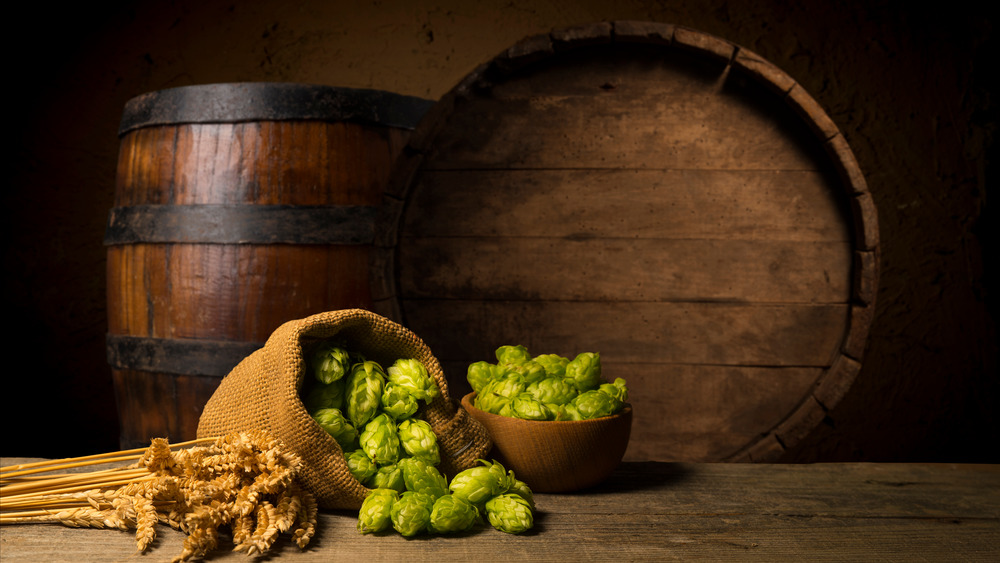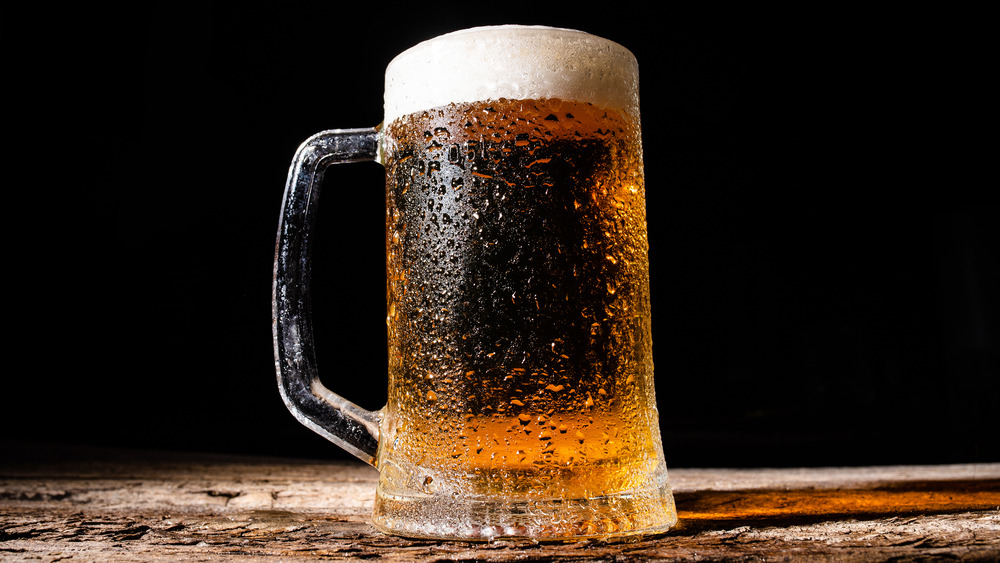Did People Drink Beer In The Middle Ages?
Fetch me mine mead, oh slave! And more ale for me hearties, or the hobbits, in those big steins — the ones with the lids — with extra froth spilling from the rim! And grab me an Oktoberfest brew while you're at it, and one of those suspenders-and-shorts outfits so I can carouse in true Medieval Times (the dining-and-show establishment) style!
As this garbled nonsense depicts, there really isn't a clear portrait of what constitutes "drinking" 1,500 years ago, prior to our darkly lit pubs or jersey-saturated sports bars. Maybe it's pirates, maybe it's a bit of clashing beer mugs together and shouting "hoorah." It's widely believed that medieval peasants, for instance, glugged their way through entire barrels of beer for breakfast, lunch, and dinner, but this isn't actually true. They couldn't afford it. Homebrewing was a thing, yes, but uncommon.
Beer in the medieval ages (476 CE through about 1300 CE) existed largely under the purvey of monks, as Alcohol: Problems and Solutions tells us, who held onto brewing, as an art, for about an entire millennium. As Medievalists cleverly points out, medieval writing extolled alcohol in the same way that modern media depicts folks drinking and having fun; there's simply no reason why people would get hyped over water. As Ælfric's Colloquy, a 10th century educational text says, "Ale if I have any, or water, if I have no ale."
Beer if possible, but more likely water
So beer in the medieval ages existed, and people liked it and wanted it. Beer, though — all alcohol, really — was enjoyed according to class and wealth. It wasn't a widely-accessible, everyday drink enjoyed by everyone whenever they could. Imagine if all beer was a $15, half-pint craft hefeweizen made from strawberries, cloves, white pepper, and tangerine rinds. And then imagine you made $5 a month. Bummer.
Mostly then, people drank water. After all, it just hangs out in nature, free of charge, waiting to be drunk. As Gizmodo outlines, part of the myth of beer's medieval pervasiveness comes from a co-existing myth of medieval water's filth. We might envision medieval people as perpetually soaked in grime, but they also lived in a pre-industrial time without rampant water pollutants. People recognized that clean water was good water, or as Lupus Servatas, a 9th century monk, said, "Let us make use a healthy, natural drink which will sometime be of benefit to both body and soul — if it is drawn not from a muddy cistern but from a clear well or the current of a transparent brook." Other medieval writers talked about examining water for cleanliness, and even boiling water to remove bad smells.
So did folks enjoy beer back then ? Sure. But they weren't such unrepentant alcoholics as we make them out to be.

